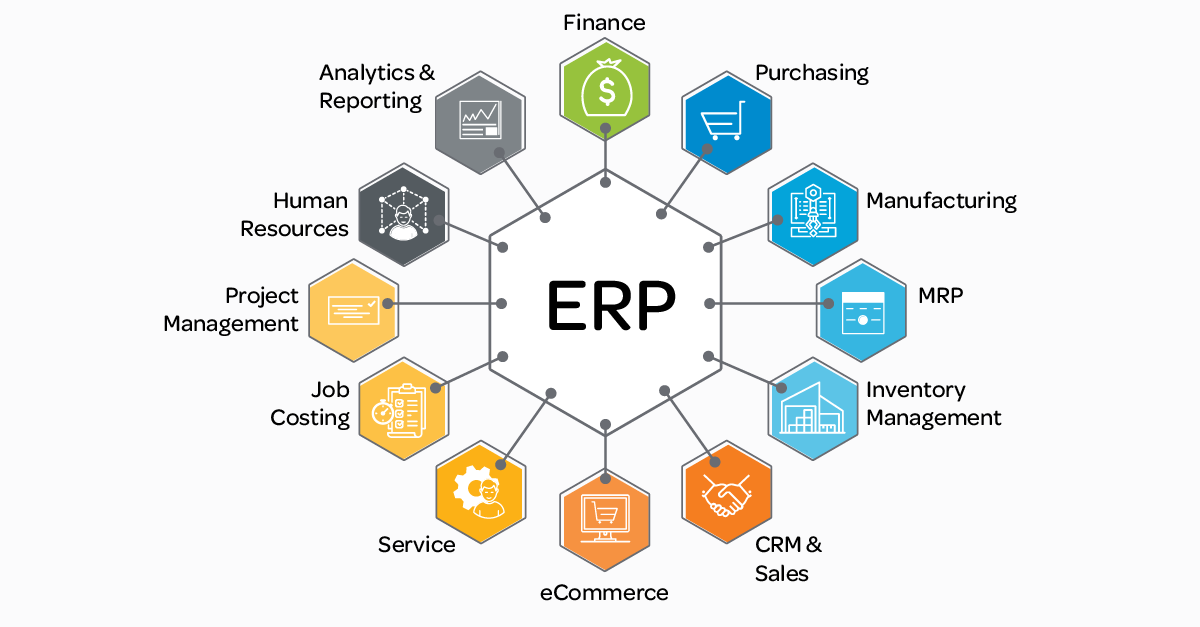Enterprise Resource Planning, commonly referred to as ERP, is a pivotal tool in the modern business landscape. This comprehensive software system is designed to streamline and automate core business processes, providing a centralized framework through which companies can manage and analyze various aspects of their business operations.
Understanding the Core Functions of ERP in Business Management
ERP systems integrate a variety of business functions, including inventory, order management, accounting, human resources, customer relationship management (CRM), and beyond. By centralizing data, ERP systems facilitate improved business insight, efficiency, and productivity. One of the primary benefits of ERP is its ability to integrate various business processes into one cohesive system, allowing for seamless data flow and improved decision-making.
How ERP Promotes Business Automation and Efficiency
One of the standout features of ERP systems is their capability to automate routine tasks. This automation extends across departments, from automating financial calculations to managing supply chain operations. Automation not only speeds up processes but also reduces the likelihood of human error, enhancing overall business efficiency and reliability.
The Strategic Role of ERP in Business Integration
Integration is another critical aspect of ERP systems. By consolidating all business operations into a single, unified system, companies can achieve a more synchronized operation. This integration is particularly beneficial for companies looking to maintain consistency and accuracy across various departments, ensuring that all segments of the business are aligned and working towards common goals.
The Impact of ERP on Business Management and Decision Making
The data centralized through ERP systems plays a crucial role in strategic business management. Managers and executives can access real-time data across all departments, enabling them to make informed decisions quickly. This aspect of management is vital for businesses in fast-paced industries where timely and accurate information is crucial for maintaining competitive advantage.
Choosing the Right ERP Software for Your Business
Selecting the right ERP software is crucial for ensuring that it aligns with your specific business needs. Factors such as industry-specific features, scalability, user interface, and customization options should be considered. Additionally, the software provider’s support and service quality are essential to ensure smooth implementation and ongoing maintenance.
In conclusion, ERP systems are invaluable for businesses seeking to enhance their operational efficiency, data accuracy, and decision-making capabilities. Whether you’re looking to integrate various business processes, automate daily tasks, or improve overall business management, an ERP system offers a comprehensive solution that can be tailored to meet your specific needs.
Ready to revolutionize your business operations and drive growth? Consider implementing an ERP system today. For businesses in the e-commerce sector looking to take their operations to the next level, register on our SmartEcomSuite. Revolutionize Your E-Commerce with our tailored solutions designed to enhance efficiency and productivity.





